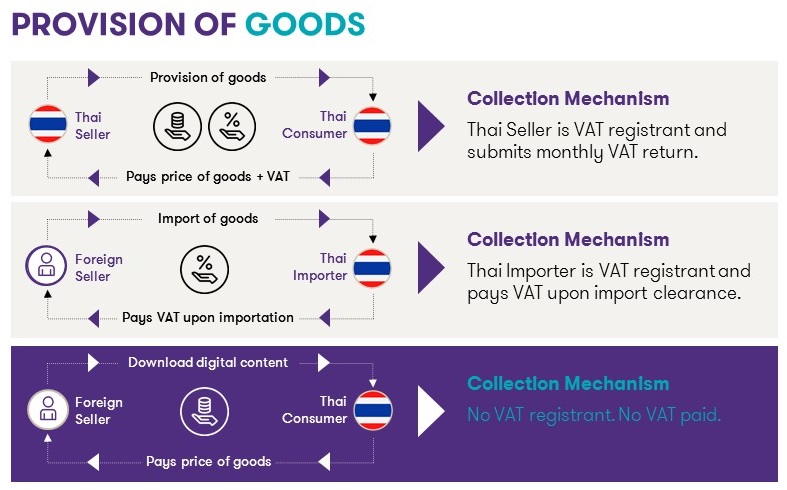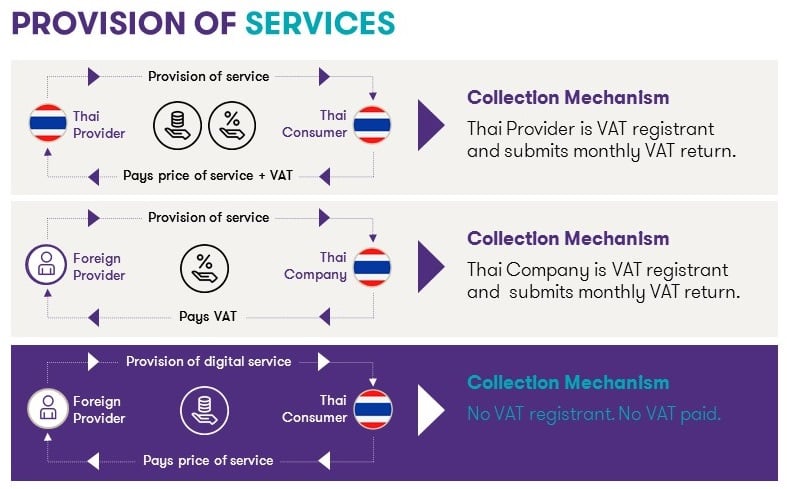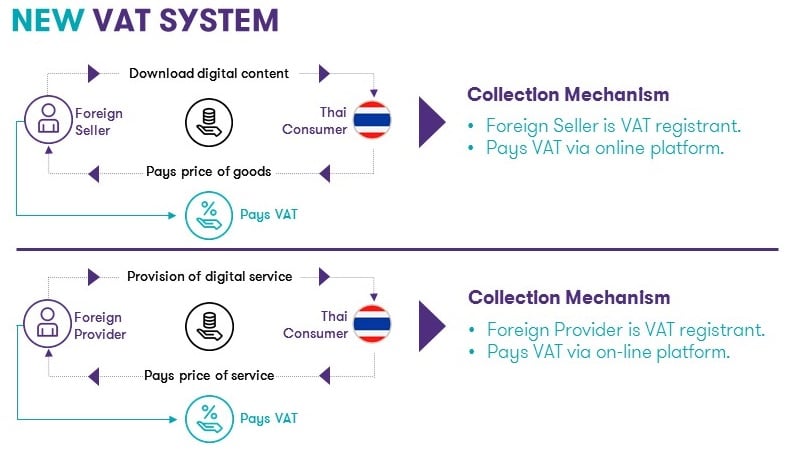-
Internal audit
In today's increasingly competitive and regulated market place, organisations - both public and private - must demonstrate that they have adequate controls and safeguards in place. The availability of qualified internal audit resources is a common challenge for many organisations.
-
IFRS
At Grant Thornton, our International Financial Reporting Standards (IFRS) advisers can help you navigate the complexity of financial reporting so you can focus your time and effort on running your business.
-
Audit quality monitoring
Having a robust process of quality control is one of the most effective ways to guarantee we deliver high-quality services to our clients.
-
Global audit technology
We apply our global audit methodology through an integrated set of software tools known as the Voyager suite.
-
Looking for permanent staff
Grant Thornton's executive recruitment is the real executive search and headhunting firms in Thailand.
-
Looking for interim executives
Interim executives are fixed-term-contract employees. Grant Thornton's specialist Executive Recruitment team can help you meet your interim executive needs
-
Looking for permanent or interim job
You may be in another job already but are willing to consider a career move should the right position at the right company become available. Or you may not be working at the moment and would like to hear from us when a relevant job comes up.
-
Practice areas
We provide retained recruitment services to multinational, Thai and Japanese organisations that are looking to fill management positions and senior level roles in Thailand.
-
Submit your resume
Executive recruitment portal
-
Update your resume
Executive recruitment portal
-
Available positions
Available positions for executive recruitment portal
-
General intelligence assessments
The Applied Reasoning Test (ART) is a general intelligence assessment that enables you to assess the level of verbal, numerical reasoning and problem solving capabilities of job candidates in a reliable and job-related manner.
-
Candidate background checks
We provide background checks and employee screening services to help our clients keep their organisation safe and profitable by protecting against the numerous pitfalls caused by unqualified, unethical, dangerous or criminal employees.

-
Capital markets
If you’re buying or selling financial securities, you want corporate finance specialists experienced in international capital markets on your side.
-
Corporate simplification
Corporate simplification
-
Expert witness
Expert witness
-
Family office services
Family office services
-
Financial models
Financial models
-
Forensic Advisory
Investigations
-
Independent business review
Does your company need a health check? Grant Thornton’s expert team can help you get to the heart of your issues to drive sustainable growth.
-
Mergers & acquisitions
Mergers & acquisitions
-
Operational advisory
Grant Thornton’s operational advisory specialists can help you realise your full potential for growth.
-
Raising finance
Raising finance
-
Restructuring & Reorganisation
Grant Thornton can help with financial restructuring and turnaround projects, including managing stakeholders and developing platforms for growth.
-
Risk management
Risk management
-
Technology & Digital Services
Technology Services
-
Transaction advisory
Transaction advisory
-
Valuations
Valuations
-
Human Capital Consulting
From time to time, companies find themselves looking for temporary accounting resources. Often this is because of staff leaving, pressures at month-end and quarter-end, or specific short-term projects the company is undertaking.
-
Strategy & Business Model
Strategy & Business Model
-
Process Optimisation & Finance Transformation
Process Optimisation & Finance Transformation
-
System & Technology
System & Technology
-
Digital Transformation
Digital Transformation
-
International tax
With experts working in more than 130 countries, Grant Thornton can help you navigate complex tax laws across multiple jurisdictions.
-
Licensing and incentives application services
Licensing and incentives application services
-
Transfer pricing
If your company operates in more than one country, transfer pricing affects you. Grant Thornton’s experts can help you manage this complex and critical area.
-
Global mobility services
Employing foreign people in Australia, or sending Australian people offshore, both add complexity to your tax obligations and benefits – and we can guide you through them.
-
Tax compliance and tax due diligence review services
Tax compliance
-
Value-Added Tax
Value-Added Tax
-
Customs and Trade
Customs and Trade
-
Service Line
グラントソントン・タイランド サービスライン
-
Business Process Outsourcing
Companies, large and small, need to focus on core activities. Still, non-core activities are important, and they need to be leaner and more efficient than most companies can make them sustainably. For Grant Thornton, your non-core activities are our core business. Grant Thornton’s experienced outsourcing team helps companies ensure resilience, improve performance, manage costs, and enhance agility in resourcing and skills. Who better to do this than an organisation with 73,000 accountants? At Grant Thornton we recognise that that outsourcing your F&A functions is a strategic decision and an extension of your brand. This means we take your business as seriously as we take our own.
-
Technology and Robotics
We provide practical digital transformation solutions anchored in business issues and opportunities. Our approach is not from technology but from business. We are particularly adept at assessing and implementing fast and iterative digital interventions which can drive high value in low complex environments. Using digital solutions, we help clients create new business value, drive efficiencies in existing processes and prepare for strategic events like mergers. We implement solutions to refresh value and create sustainable change. Our solutions help clients drive better and more insightful decisions through analytics, automate processes and make the most of artificial intelligence and machine learning. Wherever possible we will leverage your existing technologies as our interest is in solving your business problems – not in selling you more software and hardware.
-
Technical Accounting Solutions
The finance function is an essential part of the organisation and chief financial officer (CFO) being the leader has the responsibility to ensure financial discipline, compliance, and internal controls. As the finance function is critical in every phase of a company’s growth, the CFO role also demands attention in defining business strategy, mitigating risks, and mentoring the leadership. We offer technical accounting services to finance leaders to help them navigate complex financial and regulatory environments, such as financial reporting and accounting standards, managing compliance requirements, and event-based accounting such as dissolutions, mergers and acquisitions.
-
Accounting Services
Whether you are a local Thai company or a multinational company with a branch or head office in Thailand you are obliged to keep accounts and arrange for a qualified bookkeeper to keep and prepare accounts in accordance with accounting standards. This can be time consuming and even a little dauting making sure you conform with all the regulatory requirements in Thailand and using Thai language. We offer you complete peace of mind by looking after all your statutory accounting requirements. You will have a single point of contact to work with in our team who will be responsible for your accounts – no matter small or large. We also have one of the largest teams of Xero Certified Advisors in Thailand ensuring your accounts are maintained in a cloud-based system that you have access to too.
-
Staff Augmentation
We offer Staff Augmentation services where our staff, under the direction and supervision of the company’s officers, perform accounting and accounting-related work.
-
Payroll Services
More and more companies are beginning to realize the benefits of outsourcing their noncore activities, and the first to be outsourced is usually the payroll function. Payroll is easy to carve out from the rest of the business since it is usually independent of the other activities or functions within the Accounting Department. At Grant Thornton employees can gain access to their salary information and statutory filings through a specialised App on their phone. This cuts down dramatically on requests to HR for information by the employees and increases employee satisfaction. We also have an optional leave approval app too if required.
-
 IBR Optimism of Thailand Mid-Market Leaders Suggests Potential Underestimation of Challenges Ahead: International Business Report, Q1 2024Bangkok, Thailand, April 2024 — The Grant Thornton International Business Report (IBR) for Q1 2024 unveils a strikingly optimistic outlook among Thailand's mid-market business leaders, juxtaposed with the looming challenges that will shape the nation's economic future. With a Business Health Index score of 13.5, Thailand outperforms its ASEAN, Asia-Pacific, and global counterparts, signaling a robust confidence that may overshadow critical issues such as demographic changes, skills shortages, and the necessity for digital advancement.
IBR Optimism of Thailand Mid-Market Leaders Suggests Potential Underestimation of Challenges Ahead: International Business Report, Q1 2024Bangkok, Thailand, April 2024 — The Grant Thornton International Business Report (IBR) for Q1 2024 unveils a strikingly optimistic outlook among Thailand's mid-market business leaders, juxtaposed with the looming challenges that will shape the nation's economic future. With a Business Health Index score of 13.5, Thailand outperforms its ASEAN, Asia-Pacific, and global counterparts, signaling a robust confidence that may overshadow critical issues such as demographic changes, skills shortages, and the necessity for digital advancement. -
 Workshop Corporate Strategy and Company Health Check WorkshopThroughout this workshop, we will delve into the life cycle of companies, examining the stages of growth, maturity, and adaptation. Our focus will extend to the current business environment, where your Company stands today, and how our evolving strategy aligns with the ever-changing market dynamics.
Workshop Corporate Strategy and Company Health Check WorkshopThroughout this workshop, we will delve into the life cycle of companies, examining the stages of growth, maturity, and adaptation. Our focus will extend to the current business environment, where your Company stands today, and how our evolving strategy aligns with the ever-changing market dynamics. -
 Tax and Legal update 1/2024 Introducing the New “Easy E-Receipt” Tax scheme with up to THB 50,000 in Tax DeductionsThe Revenue Department has introduced the latest tax scheme, the “Easy E-Receipt”, formerly known as “Shop Dee Mee Kuen”. This scheme is designed to offer individuals tax deductions in 2024.
Tax and Legal update 1/2024 Introducing the New “Easy E-Receipt” Tax scheme with up to THB 50,000 in Tax DeductionsThe Revenue Department has introduced the latest tax scheme, the “Easy E-Receipt”, formerly known as “Shop Dee Mee Kuen”. This scheme is designed to offer individuals tax deductions in 2024. -
 TAX AND LEGAL Complying with the PDPA – A Balancing ActOrganisations must be aware of the circumstances in which they are allowed to collect data to comply with Thailand’s Personal Data Protection Act.
TAX AND LEGAL Complying with the PDPA – A Balancing ActOrganisations must be aware of the circumstances in which they are allowed to collect data to comply with Thailand’s Personal Data Protection Act.
Thailand may soon join several countries in taxing digital services and products that are provided by foreign e-commerce operators.
In July 2018, the Thai Cabinet approved of a draft law that, if enacted, will see Thailand imposing value added tax (“VAT”) on foreign operators that provide services and content through the internet or electronic media to Thai consumers.[1] The Cabinet’s endorsement of the draft is the first step in the formal legislative process. From here, the draft law will be vetted by the Council of State and subsequently reviewed, and then – likely – voted into law by the National Legislative Assembly.
Once enacted, Thailand will collect VAT on various digital services and content delivered via foreign platform to Thai consumers. Taxable parties may include foreign based websites or software developers that provide on-line streaming or downloadable music and movies, on-line advertising, on-line games, on-line hotel or travel reservations, etc. This new tax law aims to plug the perceived “tax gap” by creating collection and enforcement mechanisms on business-to-consumer (“B2C”) transactions. Business-to-business (“B2B”) transactions are already subject to tax under existing VAT system.
A simple illustration of the existing VAT landscape will help the reader visualise the issues succinctly.
Figure 1: Existing VAT System on Provision of Goods

Figure 2: Existing VAT System on Provision of Services

Figures 1 and 2 summarise the existing VAT regime.[2] Thailand imposes VAT on the provision of goods and services. Where the goods or services are provided by Thai sellers or providers, the Thai consumer pays for VAT together with the price of goods or services. Thai sellers or providers are required to file monthly VAT returns to the Revenue Department and submit the collected net VAT.
In the instances where goods or services are supplied by a foreign entity, the obligation to pay VAT rests on the Thai purchaser. The current law envisions that goods have to be physically imported and pass customs clearance, at which point the Customs Department will collect VAT on the imported goods. With respect to services, where the services are consumed by the Thai purchaser, the Thai purchaser who is a VAT registrant (e.g., a company) has an obligation to file a VAT return for foreign payment of services to the Revenue Department, and submit VAT on the service fee.
Designed during an era where high valued services are generally supplied in a B2B context, the tax system was tailored to capture VAT on foreign supplied B2B transactions. Taxing B2C transactions was deemed inefficient – the value is too low to justify the cost of collection. However, with the advent of digital commerce and the explosion of B2C service transactions, the tax gap with respect to foreign supplied B2C transactions becomes more glaring (and economically justified from a cost vs. collection perspective).
Figure 3 depicts how the Thai government intends to “re-capture” VAT at the foreign supplied B2C level.
Figure 3: New VAT System on the Digital Economy

For many foreign e-commerce operators, Thailand’s attempt to tax the digital economy should come as no surprise. Recent years have seen many countries expanding or in the process of expanding their tax net to capture digital transactions – especially those transactions that cross national or state boundaries.
As with Thailand, tax systems in many other countries were also written prior to the growth of the digital economy. Transaction taxes such as general sales tax (“GST”), consumption tax, VAT or customs duties are written from the perspective that businesses are transacted through physical movements of goods or persons, or physical presences. However, as national boundaries and physical presence are irrelevant in a digital economy, traditional tax collection mechanisms were left obsolete.
Given that traditional tax systems are unable to capture the taxable profits or revenues generated in a digital economy, new tax systems must be developed to plug the tax gap in order to avoid the loss of tax revenue. Such a tax system will also serve to create a level playing field for both traditional and digital business operators.
At the time of this writing, Australia, Argentina, some countries in the European Union, Japan, Korea, Canada, Singapore, Taiwan, New Zealand, and some states in the United States of America have either implemented taxes on the digital economy or have plans to implement new tax systems. In the next part of our article, we will discuss in further detail the trends and developments in digital commerce tax across various countries.
[1] Nation Multimedia, VAT on E-Commerce, Internet Platforms, 18 July 2018, http://www.nationmultimedia.com/detail/Economy/30350265.
[2] From a legal perspective, it is still an open question whether digital content (i.e., intangible goods) should be deemed goods or services. For more discussion on this matter, refer to our article. For our current purposes, we apply the layman’s view that intangible goods are goods. From the VAT perspective, there is no material impact – both goods and services are subject to VAT.


